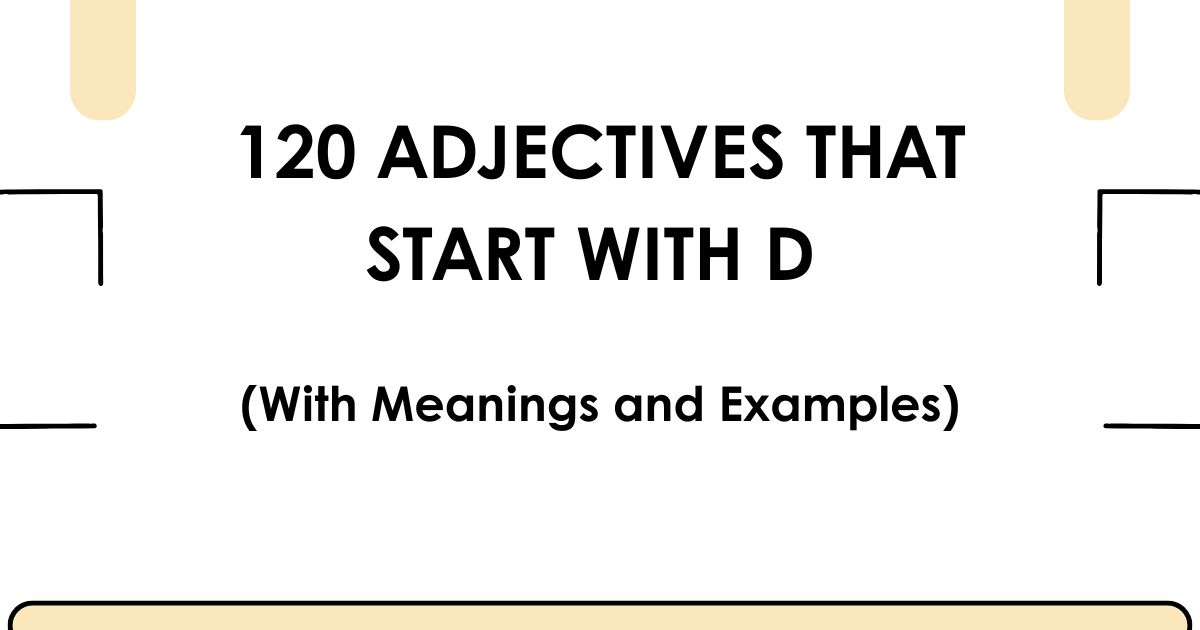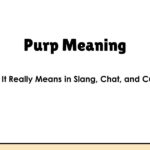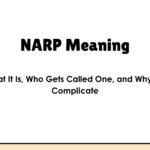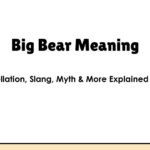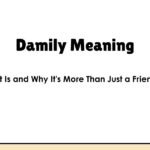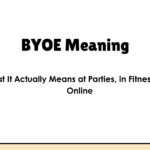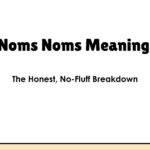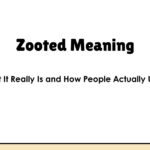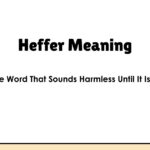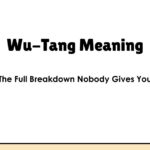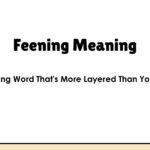Can you name five adjectives that start with D? You might think of delicious or dangerous—and then your mind goes blank. The truth is, the letter D hides hundreds of vivid, expressive words that can transform plain sentences into powerful writing—according to the Oxford English Dictionary, the English language contains over a million distinct words, with thousands beginning with D.
Whether you’re describing someone’s personality, painting a picture in a story, or polishing your essays, these D adjectives will help you say exactly what you mean. This list covers positive, negative, neutral, funny, descriptive, and rare D adjectives—each with meanings and examples designed to make your writing flow naturally.
When you pay attention to adjectives, you start to notice how they quietly shape every message. A single word—like “daring” or “dreary”—can change how a story feels. Writers, teachers, and even advertisers rely on adjectives beginning with D because they carry emotional rhythm. They sound strong, decisive, and memorable—just like the letter itself.
Why D Adjectives Deserve Your Attention
The letter D carries a lot of character. It gives us soft, gentle terms like delicate and strong, forceful ones like dominant.
D adjectives describe emotions, appearances, textures, sounds, and even moral qualities. Knowing them adds variety to your vocabulary and clarity to your ideas.
Instead of saying someone is “nice,” imagine calling them devoted, dependable, or diligent. The difference isn’t just style—it’s precision.
D adjectives often appear in real life more than we realize. A movie trailer might promise a “dynamic adventure.” A teacher could describe a “diligent student.” Even headlines use them—think “devastating storm hits coast” or “delightful surprise for fans.”
When you spot them in ads, books, or conversations, notice how they instantly set the mood. That’s language doing emotional work for you.
Positive Adjectives That Start With D
These upbeat D adjectives bring warmth, strength, and optimism to your descriptions. Perfect for compliments, character sketches, or motivational writing.
| Adjective | Meaning | Example Sentence |
| Dainty | Small and delicate | Her dainty teacup looked like porcelain lace. |
| Dapper | Neat and stylish | The dapper man straightened his tie before the meeting. |
| Daring | Bold and courageous | It was a daring rescue in the middle of the storm. |
| Dazzling | Brilliant or impressive | The fireworks created a dazzling spectacle in the sky. |
| Decent | Respectable and fair | He’s a decent person who always keeps his word. |
| Decisive | Quick and confident in decisions | Her decisive nature makes her an effective leader. |
| Dedicated | Fully committed | The dedicated nurse stayed through the night shift. |
| Delectable | Extremely tasty | The restaurant’s cheesecake was simply delectable. |
| Delicate | Gracefully fragile | Handle the delicate vase carefully—it’s antique. |
| Delicious | Pleasant to taste | The soup was delicious and comforting. |
| Delightful | Full of joy or charm | We had a delightful walk by the sea. |
| Dependable | Reliable and trustworthy | You can count on a dependable friend. |
| Deserving | Worthy of reward | She is truly deserving of recognition. |
| Desirable | Attractive or wanted | That lakeside cabin is a desirable retreat. |
| Determined | Firm in purpose | He’s determined to achieve his goal. |
| Devoted | Deeply loyal | Her devoted care made all the difference. |
| Diligent | Hardworking and attentive | A diligent student always checks their work twice. |
| Diplomatic | Tactful and fair | The diplomatic mediator found a peaceful solution. |
| Direct | Straightforward | She gave a direct and honest answer. |
| Distinctive | Uniquely recognizable | The artist’s distinctive brushstrokes set him apart. |
| Distinguished | Honored and respected | The distinguished professor received a lifetime award. |
| Divine | Heavenly or superb | The chocolate mousse was absolutely divine. |
| Dreamy | Wonderfully pleasant | The cottage had a dreamy, old-fashioned charm. |
| Driven | Ambitious and motivated | She’s a driven entrepreneur who never quits. |
| Dutiful | Responsible and respectful | The dutiful son visited his parents weekly. |
| Dynamic | Full of energy and change | The city’s dynamic culture draws young people in. |
💡 Tips for ESL Learners:
- “Diligent,” “Dependable,” and “Devoted” often describe people’s character, not objects.
- “Delicious” and “Delightful” are for taste or experiences.
- To sound natural, pair adjectives with fitting nouns: “delightful surprise,” “dynamic city,” “daring plan.”
- Listen to how native speakers use D adjectives in TV shows or podcasts—you’ll catch their rhythm fast.
Point: The chocolate mousse was absolutely divine—a word that traces its roots to the Latin “divinus,” meaning heavenly or godlike, as noted by Merriam-Webster.
Negative Adjectives That Start With D
Sometimes you need words that describe flaws, dangers, or difficulties. These D adjectives capture the darker or more challenging sides of life—without exaggeration.
| Adjective | Meaning | Example Sentence |
| Damaged | Broken or harmed | The damaged painting needed restoration. |
| Damaging | Causing harm | Rumors can be damaging to someone’s reputation. |
| Dangerous | Likely to cause injury | Driving in fog can be dangerous. |
| Dark | Lacking light; gloomy | The dark alley felt unwelcoming. |
| Deadly | Fatal or lethal | That snake’s bite is deadly. |
| Deceitful | Dishonest and tricky | The deceitful politician made false promises. |
| Deceptive | Misleading | Appearances can be deceptive. |
| Defective | Faulty or flawed | The company recalled the defective parts. |
| Defiant | Disobedient or resistant | The defiant child refused to sit down. |
| Dejected | Sad and downhearted | She looked dejected after the loss. |
| Demanding | Requiring great effort | The training program is demanding but rewarding. |
| Demeaning | Lowering someone’s dignity | His rude jokes were demeaning. |
| Deplorable | Shockingly bad | The living conditions were deplorable. |
| Depressed | Very unhappy | He felt depressed during the long winter. |
| Depressing | Causing sadness | The film’s ending was deeply depressing. |
| Derelict | Abandoned or ruined | The derelict warehouse was covered in ivy. |
| Desperate | Hopeless or frantic | They made a desperate attempt to survive. |
| Despicable | Deserving hatred | That was a despicable act of cruelty. |
| Destructive | Causing serious damage | The wildfire was highly destructive. |
| Detrimental | Harmful or disadvantageous | Excessive sugar is detrimental to health. |
| Devastating | Emotionally or physically ruinous | The news was devastating for the family. |
| Devious | Sneaky and dishonest | He used devious tricks to win. |
| Difficult | Hard to manage or do | This puzzle is quite difficult. |
| Dirty | Unclean or unethical | That was a dirty tactic during the match. |
| Disagreeable | Unpleasant or unfriendly | Her disagreeable tone ruined the conversation. |
| Disastrous | Extremely unsuccessful | The launch was disastrous. |
| Dishonest | Untruthful | He was fired for dishonest behavior. |
| Dismal | Gloomy or depressing | It was a dismal, rainy afternoon. |
| Disorganized | Lacking structure | His notes were totally disorganized. |
| Disrespectful | Lacking respect | It’s disrespectful to interrupt someone mid-sentence. |
| Disruptive | Causing disturbance | The disruptive student was asked to leave. |
| Distracted | Unable to focus | He felt distracted during the meeting. |
| Distracting | Pulling attention away | That flashing ad is distracting. |
| Dreadful | Very bad or unpleasant | The food was dreadful. |
| Dreary | Dull and lifeless | The dreary sky matched her mood. |
| Dull | Uninteresting or dim | The lecture was painfully dull. |
| Dysfunctional | Not working properly | The team became dysfunctional after the conflict. |
💡 Tips for ESL Learners:
- Many negative D adjectives use “de-” or “dis-,” which means opposite (like “disloyal,” “deceptive”).
- “Dangerous” describes risk, while “damaging” describes results.
- Avoid using strong words like “despicable” about people unless you truly mean extreme dislike.
Neutral Adjectives That Start With D
These D adjectives simply describe facts. They don’t carry emotional weight—perfect for objective writing, reports, or academic tone.
| Adjective | Meaning | Example Sentence |
| Daily | Occurring every day | She checks her planner daily. |
| Damp | Slightly wet | The grass was damp from morning dew. |
| Dead | No longer alive or functioning | The phone battery is dead. |
| Deaf | Unable to hear | The deaf musician played by feeling vibrations. |
| Decorative | Used for beauty | The decorative tiles added color to the kitchen. |
| Deep | Extending far down or complex | He shared deep thoughts about life. |
| Dense | Closely packed | The dense forest blocked the sunlight. |
| Detailed | Full of specific information | Her detailed notes helped everyone study. |
| Different | Not the same | Each snowflake has a different pattern. |
| Digital | Using technology | She designed a digital poster. |
| Dim | Faint or not bright | The room was lit by a dim bulb. |
| Distant | Far away | They waved to the distant ship. |
| Distinct | Clearly separate | Their voices are distinct from one another. |
| Diverse | Varied or mixed | The city has a diverse community. |
| Divided | Split or separated | The issue left the group divided. |
| Dizzy | Feeling unsteady | Spinning made him dizzy. |
| Domestic | Relating to home or country | Domestic flights are often cheaper. |
| Dominant | Most powerful | The dominant team led the league. |
| Double | Twofold or twice | He ordered a double espresso. |
| Doubtful | Uncertain | It’s doubtful we’ll finish by noon. |
| Dozen | Twelve of something | She bought a dozen donuts. |
| Dramatic | Sudden and intense | The weather changed in a dramatic way. |
| Drowsy | Sleepy | The warm room made everyone drowsy. |
| Dry | Without moisture | The desert air felt dry. |
| Dual | Having two parts | The car has a dual exhaust system. |
| Due | Expected or owed | The rent is due tomorrow. |
| Dusty | Covered with dust | Old books sat on the dusty shelf. |
💡 Tips for ESL Learners:
- Neutral words often describe facts, not feelings.
- “Deep” can describe both emotion and distance, depending on context.
- “Dim” and “Dull” can describe light or personality—context matters.
Related: 70 Adjectives That Start With X: With Meanings and Examples
Funny Adjectives That Start With D
Language doesn’t have to be serious. These humorous D adjectives bring a smile to your storytelling or dialogue.
| Adjective | Meaning | Example Sentence |
| Daffy | Silly or eccentric | The daffy inventor forgot his lunch again. |
| Daft | Foolish or wacky | That’s a daft idea, but it might just work. |
| Dippy | Scatterbrained | My dippy friend lost her phone twice today. |
| Discombobulated | Confused | He looked discombobulated after waking up. |
| Ditzy | Silly and forgetful | The ditzy character made everyone laugh. |
| Dopey | Goofy or half-asleep | My dopey dog walks into doors sometimes. |
| Dorky | Endearingly awkward | His dorky dance moves were oddly charming. |
| Doting | Overly affectionate | The doting father took endless photos of his baby. |
| Droopy | Hanging down | His droopy hat covered his eyes. |
💡 Tips for ESL Learners:
- “Dorky,” “Ditzy,” or “Dopey” are friendly teasing words.
- Avoid using them formally—they fit better in humor or casual talk.
Personality Adjectives That Start With D
When you want to capture someone’s character, these D adjectives help paint the perfect portrait.
| Adjective | Meaning | Example Sentence |
| Daring | Fearless and bold | The daring explorer climbed the cliffs. |
| Defiant | Resistant to control | The defiant teenager challenged authority. |
| Defensive | Quick to justify | He grew defensive during feedback. |
| Deliberate | Thoughtful and careful | Her deliberate tone calmed the room. |
| Delightful | Pleasant and charming | Everyone enjoys her delightful presence. |
| Demanding | Expecting high effort | The demanding boss never settled for average. |
| Dependable | Consistently reliable | You can rely on a dependable coworker. |
| Determined | Persistent and firm | He remained determined to succeed. |
| Devoted | Loyal and caring | She’s devoted to her family. |
| Dignified | Calm and respectful | He carried himself with dignified grace. |
| Diligent | Conscientious and hardworking | The diligent intern never missed a deadline. |
| Diplomatic | Skilled in handling conflict | She’s diplomatic even in tense debates. |
| Discreet | Careful and private | He’s discreet about personal matters. |
| Docile | Gentle and easy to manage | The docile horse was perfect for beginners. |
| Dogmatic | Rigid in beliefs | His dogmatic attitude frustrated his peers. |
| Domineering | Overly controlling | Her domineering tone silenced the team. |
💡 Tips for ESL Learners:
- These words describe someone’s usual behavior, not just a moment.
- “Defensive” and “Defiant” both describe reactions—but one protects, the other resists.
Popular Adjectives Beginning With D
These D words appear everywhere—from daily speech to literature—and are worth mastering.
| Adjective | Meaning | Example Sentence |
| Daily | Every day | Brush your teeth daily. |
| Dark | Without light | It gets dark early in winter. |
| Dead | Not alive | The flowers are dead from frost. |
| Deep | Far below the surface | The lake is surprisingly deep. |
| Delicious | Very tasty | This pie is delicious. |
| Different | Not the same | They have different opinions. |
| Difficult | Hard to handle | The exam was difficult. |
| Direct | Straight or clear | She took a direct route home. |
| Dirty | Unclean | Your shoes are dirty. |
| Double | Twice the amount | He asked for a double shot of espresso. |
| Dry | Lacking moisture | The soil is dry after weeks without rain. |
Descriptive Adjectives Beginning With D
For writers who love imagery, these adjectives help paint vivid pictures that draw readers into the scene.
| Adjective | Meaning | Example Sentence |
| Dappled | Spotted with light | Dappled sunlight danced across the ground. |
| Deafening | Extremely loud | The applause was deafening. |
| Desolate | Empty and bleak | They crossed a desolate plain. |
| Dewy | Covered in dew | Her skin looked fresh and dewy. |
| Dilapidated | Falling apart | The dilapidated barn leaned sideways. |
| Dusky | Softly shaded | The dusky sky turned violet at dusk. |
| Dewy-eyed | Innocent or naive | The dewy-eyed child believed in fairies. |
| Drenched | Completely soaked | We got drenched in the storm. |
| Downy | Soft and fluffy | The chick’s downy feathers felt like silk. |
| Dank | Damp and chilly | The basement smelled dank after the rain. |
💡 Tips for ESL Learners:
- “Dappled,” “Dusky,” and “Dewy” often appear in nature writing.
- Try reading poetry to see how descriptive adjectives create imagery.
Rare & Unique Adjectives Starting With D
If you love uncommon words, these gems will enrich your vocabulary and impress your readers.
| Adjective | Meaning | Example Sentence |
| Doughty | Brave and resolute | The doughty knight defended the castle. |
| Dulcet | Sweet-sounding | Her dulcet voice soothed the baby. |
| Diaphanous | Sheer and delicate | She wore a diaphanous veil. |
| Dauntless | Bold and fearless | The dauntless climber reached the peak. |
| Defunct | No longer active | The defunct company closed years ago. |
| Droll | Oddly amusing | His droll humor made everyone chuckle. |
| Debonair | Suave and confident | The debonair host greeted guests warmly. |
| Deleterious | Harmful | The chemical had deleterious effects. |
| Diffident | Shy and modest | The diffident student avoided attention. |
| Dogged | Persistent and stubborn | Her dogged effort finally paid off. |
Tips for ESL Learners:
- These are advanced vocabulary words—use them in essays or creative writing.
- Learn one at a time; try using “debonair” or “droll” in a sentence today.
How to Use D Adjectives Effectively
Knowing the words is just the start—using them well makes them powerful.
- Replace plain adjectives: “Good student” → diligent student.
- Choose one strong word instead of many weak ones.
- Match tone to context: Discombobulated fits humor, but disoriented suits formality.
- Use D adjectives for rhythm or alliteration: dark, dangerous, daunting.
- Show meaning through action: She practiced every night, determined to improve.
- Think about mood: Dappled forest (peaceful) vs. desolate wasteland (bleak).
Fun Facts About D Words
- The letter D comes from the ancient Phoenician “daleth,” meaning door, a detail recorded in the Online Etymology Dictionary.
- Dapper once meant brave before it meant stylish.
- Dizzy originated from an Old English word for foolish.
- The prefix dis- turns meanings negative, as in dishonest or disloyal.
- Delicious and delightful share the Latin root delectare, meaning to please.
- Modern slang has revived dope (once drug-related) to mean cool or amazing.
- Dynamic traces back to the Greek dynamis, meaning power.
Quick Quiz: Which D Adjective Fits Your Mood?
- You just finished a huge task and feel proud — are you determined or devoted?
- You spilled your drink twice and laugh about it — that’s a little dippy, right?
- You’re reading quietly in the park — maybe dreamy or drowsy fits best.
Try matching new D adjectives with real moments from your day. That’s how vocabulary sticks naturally!
FAQs About D Adjectives
1. What are some common adjectives that start with D?
Everyday words like different, dark, deep, delicious, and difficult are among the most common D adjectives you’ll hear in speech and writing.
2. Which D adjectives describe personality traits?
Words such as determined, dependable, diplomatic, daring, and devoted capture different shades of character and behavior.
3. What are positive adjectives that start with D?
Use delightful, dazzling, diligent, dynamic, and decent to convey uplifting or admirable qualities.
4. What are negative adjectives that start with D?
When describing flaws or challenges, words like deceptive, destructive, dreadful, defiant, and dishonest work well.
5. Can D adjectives be used in academic or formal writing?
Yes. Neutral or precise terms such as detailed, deliberate, decisive, distinct, and documented sound polished and professional in essays or reports.
6. What are some rare or unusual D adjectives?
Try doughty (brave), dulcet (sweet-sounding), diaphanous (delicate), droll (amusing), or debonair (suave) for more literary expression.
7. Are there funny or playful D adjectives?
Definitely—daffy, dippy, ditzy, dorky, and dopey add humor or light-hearted tone to writing.
8. How can I remember adjectives that start with D more easily?
Group them by feeling or function—like “positive,” “personality,” or “descriptive.” Writing short example sentences also helps the meaning stick.
9. Why should I use varied adjectives instead of repeating the same ones?
Because variety improves rhythm, keeps readers engaged, and signals stronger writing skill—something search engines also reward when evaluating helpful content.
✏️ Real-Life Writing Tips:
- Use D adjectives to replace plain ones. Instead of “good student,” say “diligent student.”
- When describing people, focus on their actions: “She stayed late every night—so determined to finish.”
- In stories, mix soft and strong words for rhythm: “dark, daring, dazzling.”
- Keep it conversational; words work best when they sound like something you’d actually say.
Final Thoughts
You’ve just learned 120 dynamic adjectives starting with D—from daring and delightful to droll and dogged. These words aren’t just for lists; they’re tools for expressing emotion, detail, and creativity.
Try this challenge: pick three new adjectives today and use them in a text, journal, or story. The more you practice, the more natural your language becomes.
Keep exploring other letters too on Legacy Stance—because words are doors (and yes, D originally meant “door” in ancient Phoenician). Each new one opens a way to say exactly what you feel.

Hi, I’m the creator of Legacystance.com, dedicated to making English learning simple and enjoyable. I write clear, practical guides on adjectives, verbs, idioms, pronunciation, spelling, and more. Every article is carefully researched to give accurate, easy-to-understand information. My goal is to help readers improve their English skills confidently, one step at a time, with content that is trustworthy, useful, and beginner-friendly.
